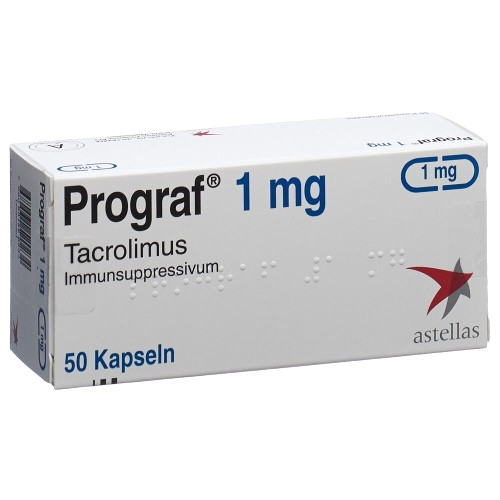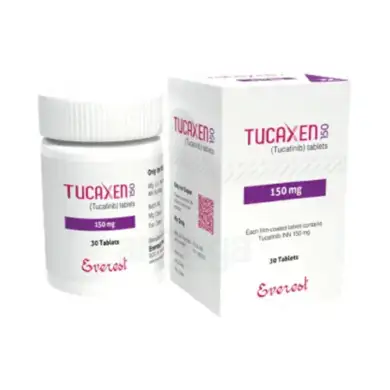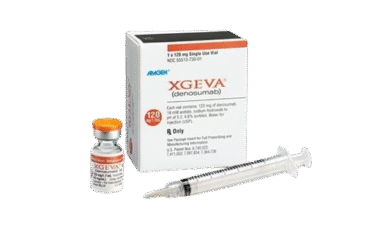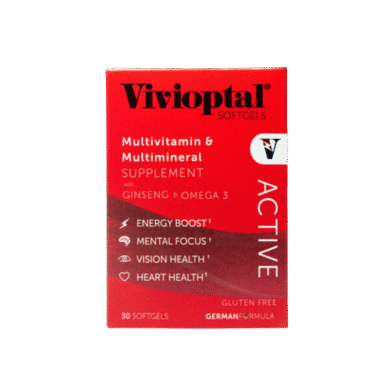Description
Prograf 1mg 50 Capsules (Tacrolimus) – Uses, Dosage, Side Effects & Storage
Prograf (tacrolimus) is a powerful immunosuppressant medication used to prevent organ rejection in patients who have undergone a kidney, liver, heart, or lung transplant. By suppressing the immune response, Prograf helps the body accept a transplanted organ and reduces the risk of rejection.
What is Prograf 1mg Used For?
-
Prevents organ rejection after kidney transplant
-
Prevents organ rejection after liver transplant
-
Prevents organ rejection after heart transplant
-
Prevents organ rejection after lung transplant
Prograf is an essential medication prescribed by transplant specialists and should only be taken under strict medical supervision.
Prograf 1mg Dosage and Administration
-
Initial Adult Dosage: 0.2–0.3 mg/kg/day, divided into two doses every 12 hours
-
Timing:
-
For liver, heart, or lung transplants – first dose no sooner than 6 hours after surgery
-
For kidney transplants – first dose within 24 hours, once kidney function has recovered
-
-
Therapeutic Monitoring: Blood tests are required to maintain the correct tacrolimus levels
Mechanism of Action – How Prograf Works
-
Tacrolimus binds to the FKBP-12 protein inside cells
-
The tacrolimus-FKBP12 complex blocks the enzyme calcineurin
-
This prevents activation of T-lymphocytes, reducing the immune attack on transplanted organs
-
Result: Suppressed immune response, preventing rejection
Common Side Effects of Prograf
Like all immunosuppressants, Prograf may cause side effects. These can include:
-
Headache and tremors
-
Insomnia and anxiety
-
High blood pressure (hypertension)
-
Diabetes and high blood sugar
-
Nausea, vomiting, diarrhea
-
Increased risk of infections and certain cancers
Warnings & Precautions
-
Use with caution in patients with kidney or liver impairment
-
Avoid excessive sun exposure – Prograf may increase risk of skin cancer
-
May cause neurological disturbances (dizziness, vision problems) – avoid driving if affected
-
Pregnancy & Breastfeeding: Not recommended; risk of miscarriage, premature birth, and harm to newborn
-
Do not use if allergic to tacrolimus or any capsule ingredient
Drug & Food Interactions
Prograf can interact with several drugs and foods:
-
Avoid grapefruit & grapefruit juice – increases drug concentration
-
May interact with:
-
Other immunosuppressants
-
Anti-HIV drugs
-
Antifungals & antibiotics
-
Seizure medications
Always inform your doctor of all medications and supplements you are taking.
-
Storage Guidelines
-
Store Prograf capsules in a cool, dry place below 25°C
-
Keep away from heat, moisture, and light
-
Always store in original packaging
-
Keep out of reach of children and pets
Reviews & Patient Experience
Currently, there are no specific customer reviews available for Prograf 1mg 50-count capsules. However, patients and doctors consider it a critical medication for transplant success, provided it is taken exactly as prescribed.
Key Takeaways
-
Prograf 1mg (tacrolimus) is a trusted immunosuppressant for organ transplant patients
-
Works by inhibiting T-cell activation to prevent rejection
-
Requires strict dosage monitoring and regular blood tests
-
May cause side effects, but benefits outweigh risks in transplant patients
-
Must be stored properly to maintain effectiveness







Reviews
There are no reviews yet.